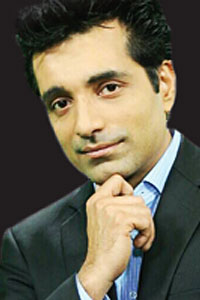
Thailand's political landscape saw a dramatic change on Wednesday when the Supreme Court's Criminal Division for Holders of Political Positions handed down its verdict to imprison former prime minister Yingluck Shinawatra for five years for negligence of her duty as premier.
The decision was based on the fact that Yingluck had done little to curtail the activities of her subordinate and commerce minister Boonsong Teriyapirom, who had undertaken a fake government-to-government rice deal. Boonsong himself has been convicted and now faces 42 years in jail for his role in causing damage to the state.
The court's verdict did not state whether the rice pledging policy implemented by Yingluck and her government was wrong but only stated that she neglected her duty in curtailing corruption in the scheme.

Umesh Pandey is Bangkok Post editor.
The verdict left some room for appeal but less than 24 hours after it was handed down, the military government that overthrew the Pheu Thai-led government of which the Shinawatras were the key backers came out with new rules that force any appeal to be lodged by the convicted person and not through lawyers. To make matters worse, the statutory limit on the case, which is usually about a decade or so, is a lifetime.
In most countries any new rules are effective only after they are put in place, but this is Thailand and in Yingluck's case the rules were effective retroactively. In normal circumstances people like Yingluck should have had the opportunity to appeal even without being present, as had been the case on the day the verdict was handed down.
Meechai Ruchupan, head of the Constitution Drafting Committee, said the new law, which was published in the Royal Gazette on Thursday and took effect on Friday, would require Yingluck to appeal in person. This basically closes the door on any appeal by Yingluck against the verdict and leaves no room for her to return to Thailand in the foreseeable future unless she's willing to be behind bars.
The case has raised more questions than it has answered. Many on the street believe that all these rules being put in place by those in power have a single aim of trying to curtail the power and marginalise the once powerful Pheu Thai Party. And to further cement this possible misconception is the fact that other political parties are being left to do what they like and their party members and leaders are not being prosecuted even when they are in breach of the law.
A good example is the case of former deputy prime minister Suthep Thaugsuban, who has been accused of violation of Section 157 of the Criminal Code by committing misconduct or dereliction of duty for his handling of the 6.67 billion baht project to build 396 police stations under the Abhisit Vejjajiva government that lost power in 2011 to Yingluck.
The case, which started well before the Yingluck rice pledging case, has continued to drag on. Little has been heard about it since May 2015 when Mr Suthep was still a monk and once after that when the anti-Pheu Thai "independent" National Anti-Corruption Commission (NACC) decided to change one of its outside members because Mr Suthep claimed he was biased against him.
This outside member was none other than Vicha Mahakhun, the NACC subcommittee chairman in charge of investigating Mr Suthep's misconduct. Mr Vicha was hired as an outside member after he retired from the chair of the subcommittee in which he had implicated Mr Suthep.
While this dereliction of duty case continues to drag on, Democrat Party leader Mr Abhisit, who was Mr Suthep's immediate boss, is basically left off the hook.
The NACC and other investigating agencies claim that Mr Suthep's case is far more complicated than that of Boonsong and Yingluck. The bogus rice deal, which the agencies say cost the state losses of up to 20 billion baht, required investigation not just in Thailand but in China as well, but yet authorities say that investigating within Thai borders is more difficult.
All this gives the impression that those in power are trying to come up with a million explanations for their snail's pace of investigation into those aligned to the people in power, but to the general public this kind of move is nothing more than what has been repeated a million times over the past decade -- the implementation of double standards.
The blatant breach and different interpretation of rules for different sides makes one wonder how this country can achieve its goal of reconciliation and move on.
